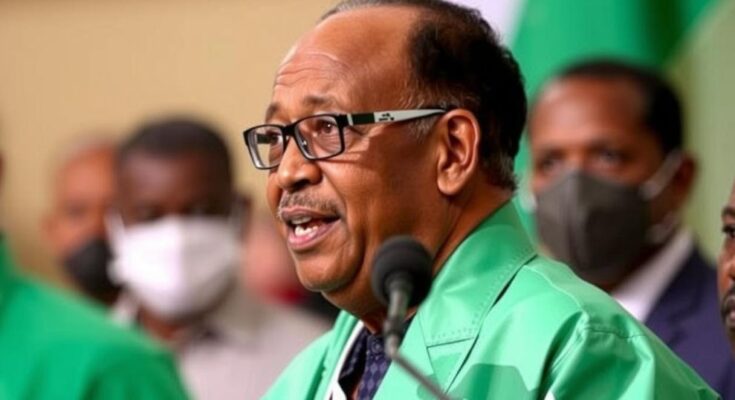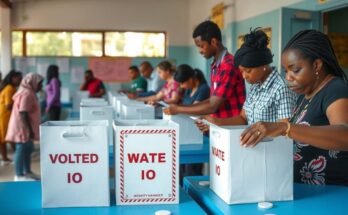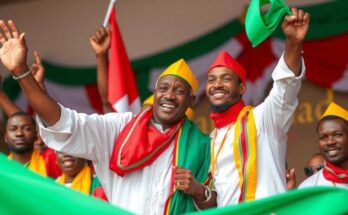Chad’s ruling party, the Patriotic Salvation Movement, secured 124 of 188 parliamentary seats in elections boycotted by the main opposition. The elections marked Chad’s first parliamentary vote in over a decade and occurred amid significant political and security challenges. This victory further consolidates President Mahamat Idriss Deby’s power following his military takeover in 2021.
Chad’s ruling party, the Patriotic Salvation Movement, has emerged victorious in the country’s parliamentary elections, securing 124 out of 188 available seats. This election, held for the first time in over a decade, has seen a voter turnout of 51.5%. Notably, the main opposition, which includes over ten political parties, opted to boycott the elections, labeling it a “charade.” This decision followed concerns over the credibility of previous elections, including a contested presidential vote won by Mahamat Idriss Deby in 2022.
The parliamentary election represents a pivotal juncture in Chad’s political landscape, serving as a final stage in its transition to democracy initiated by Mahamat Idriss Deby’s military rule since 2021. Following the death of longtime leader Idriss Deby Itno in 2021, the current president aims to establish an era of decentralization, purportedly aligning power distribution with the aspirations of the Chadian populace. Despite these claims, opposition parties have remained skeptical about the fairness of the electoral process and its implications for true democratic governance.
Furthermore, Chad faces numerous challenges, including rising security threats from groups like Boko Haram, along with significant shifts in its international relations, particularly concerning France. As the situation develops, the implications of this election on Chad’s political stability and international collaborations will become increasingly apparent.
Chad has not held parliamentary elections in more than a decade, and this recent election was seen as crucial in determining the future direction of its political system. Historically, the country has been dominated by the Deby family, with Idriss Deby Itno ruling for over thirty years before his death. The transition of power to Mahamat Idriss Deby, who came to power as a military leader, has raised questions about democracy and governance in the nation. The boycott by the main opposition parties reflects a profound discontent with the electoral process, which they fear will not lead to real change but rather reinforce existing power structures. The current political landscape is further complicated by security issues and deteriorating relations with international allies.
In conclusion, Chad’s recent parliamentary elections highlighted significant political dynamics and the ramifications of the ruling party’s continued dominance. With a substantial portion of opposition parties boycotting the elections, concerns over electoral integrity persist. The victorious outcome for the Patriotic Salvation Movement might strengthen the current regime while complicating the journey towards a truly democratic system amidst ongoing security challenges and shifting alliances. How these developments will impact Chad’s future remains to be seen, but they underscore the complexities of governance in a post-conflict context.
Original Source: www.mymotherlode.com




